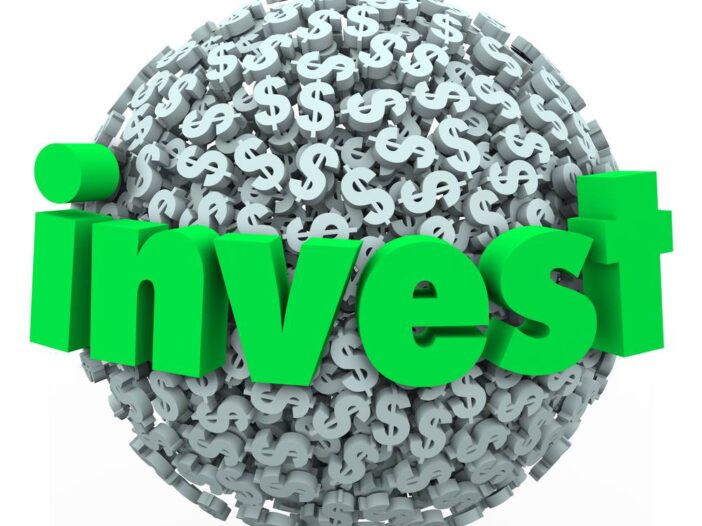The mighty US had its credit rating chopped last week.
From AAA to AA+.
A small move perhaps, but it feels like a big deal.
I mean, the last time this happened (in 2011), the S&P 500 plummeted 6.5% the very next day.
This time around?
Hardly a murmur.
Though the S&P 500 fell 2.5% for the week, it wasn’t a panic sell-off by any means.
Probably, as I wrote about two weeks ago, it was just the excuse some were waiting on to lock in some great 2023 profits.
So, why the complacency?
Joseph Brusuelas, chief economist at RSM US says markets simply don’t believe the downgrade will make a practical difference:
‘My sense is that the Fitch downgrade of the US credit rating is an insignificant development and will not move financial markets or the economy. As long as the Federal Reserve continues to treat US issued paper as AAA rated credit so will financial market participants.’
He could be right.
I mean, financial markets are so manipulated by government intervention these days, this rerate may not have the flow-on effect it should in a more ‘normal’ world.
On the other side of the coin, Canadian bond veteran Greg Foss thinks Fitch is behind the eight ball already.
He says the reality is already a lot more dire, writing:
‘The sad part is people actually believe credit rating agencies have integrity and a backbone… The USA is already a CCC rated credit on an Ebitda/interest expense metric.’
He’s got a point too…
Simply maths
As it stands, the repayments on US Government debt are rising exponentially as both the amount and the interest rates surge in equal measure.
Someone on Twitter posted this amusing graphic:
|
|
| Source: Twitter |
I usually like seeing the telltale hocky-stick shape of exponential growth on a stock I’m in…but not when it comes to debt!
The figures are staggering.
Annual interest payments are set to surpass US$1 trillion this year — more than the US spends on defence.
And with the US running a 6% budget deficit every year, Foss calculates total US Government debt will be US$50 trillion by 2030.
It’s at US$32 trillion today.
This is clearly unaffordable without massive money printing (quantitative easing) coming down the line.
Anyway, as I said before, stock markets barely budged on the downgrade.
So far, they’re betting the Fed finds a way out of this debt spiral. Or, at least, in a way that doesn’t hit the nominal value of the stock market.
We’ll see.
In other news…
Earnings season steadies the ship
Earnings season continued in the US last week.
And we had some more good results.
In my opinion, this probably dampened the effect of the Fitch credit downgrade too.
Heavyweight index stock Apple Inc [NASDAQ:APPL] posted higher-than-expected quarterly income.
Though, I’d note this was mainly from service spending over hardware with softening in both iPhone and iPad sales.
Amazon’s [NASDAQ:AMZN] cloud division, which contributes a whopping 74% to Amazon’s total profit despite making up only 13% of revenue, slowed down but not as much as expected, sparking hopes of a quicker turnaround.
And Airbnb [NASDAQ:ABNB] announced a solid earnings beat on Friday with earnings (EBITDA) up 12.6%.
That could be interpreted as a good sign of the general healthiness of the underlying economy.
According to a recent NAB survey, travel is in the top five items consumers are willing to cut in the event of money problems.
So, it looks like most people are still feeling pretty good about things…
Close to home, earnings season ramps up in the Aussie market this week with the likes of Commonwealth Bank of Australia [ASX:CBA], Suncorp Group [ASX:SUN], and QBE Insurance Group [ASX:QBE] all reporting.
I’ll be paying attention to bellwether stocks like JB Hi-Fi [ASX:JBH] and Webjet [ASX:WEB] for further insights into how consumers are going.
Property-related stocks will be another interesting space to watch, given their sensitivity to interest rates.
Stockland Corporation [ASX:SGP] and Mirvac Group [ASX:MGR] are two stocks worth keeping an eye out on there.
Though, when you read any results, bear in mind, all earnings are, by definition, historical. They can’t tell you what the next 12 months will look like.
Which, after all, is the hard thing about investing!
Lastly…
It’s still game on!
As I wrote last Monday, we could be about to see an amazing new scientific discovery.
The invention of a superconductive material at room temperature. This is an absolute game changer for the world.
The good news?
Despite a lot of conflicting reports, and even more scientific scepticism, there’s still a good chance the discovery is real.
As this tweet noted:
|
|
| Source: Twitter |
For now, watch this space.
I know I’ll be…
Good investing,
 |
Ryan Dinse,
Editor, Money Morning



